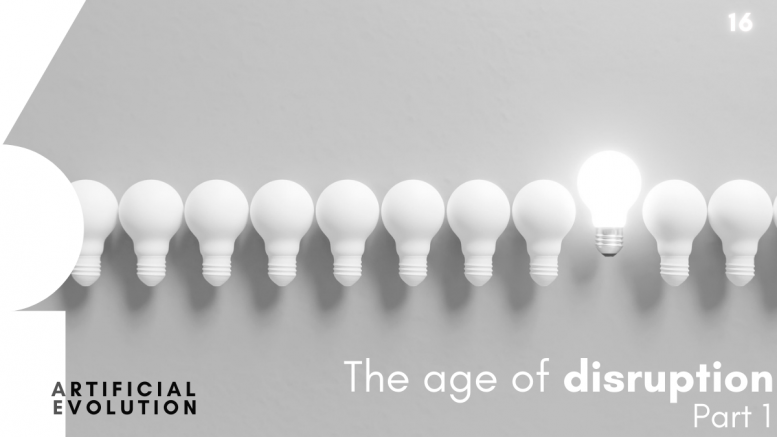Author’s note: The rapid change in communications and marketing is a daunting subject. To demonstrate the lightspeed changes in the industry, a lot of the research behind this piece was by a AI research bot team of AIWriter and AnswerThePublic. The goal of this two-part commentary is to drive curiosity and experimentation.
*****
The thing about disruption is that it isn’t about whether you’re different from the others. It is that you do things differently and you do them at speed and at scale.
The definition is:
“Radical change to an existing industry or market due to technological innovation.”
Simply put, it is a process in which undervalued or unexpected products or services become popular enough to replace or replace traditional products or services on the market. The concept of innovation is closely related to the idea of business interruption, mainly because the origin of disruptive products and services stems from unconventional methods of business and market innovation.
The digital revolution is pushing companies to tackle today’s challenges as consumers, keeping up with the technology curve and driving the latest change faster. In addition, digital disruption has provided us with big data and analytics that companies can use to drive more exceptional sales by gaining insight into customers’ buying habits.
Disruptive marketing involves the use of experimental tactics that challenge the status quo. Rather than follow conventional marketing wisdom, disruptive marketers are testing out bold new tactics that have never been used before.
Disruptive technologies offer new ways of serving customers and exciting new results. Moving forward, marketers must learn disruptive tactics to improve the customer experience if they are to succeed. Marketers must find disruptive methods to stand out from the competition by standing out as customer-centric brands
The film below is an example of technology reaching before the marketers demand:
Finding the next billion ad consumers
The goal isn’t to get people to buy now. Since business models have changed from product based economies to time involved with the brand, often the goal is not to sell the product directly. It’s to make the user believe that they’re part of a ‘bigger thing’. Essentially the utility of the product i.e. wearing a pair of Nikes doesn’t matter. What does matter is that you tell everybody the buying and “maintenance” process of your new Air Jordans.
Disruptive technologies such as Facebook and social media, smartphones and text messaging, Skype and video messaging, and now Slack and instant messaging have changed the way we communicate with each other on a daily basis. There is no doubt that the next evolving technology will also change the way we communicate, just like those before. The ways in which we communicate with each other have changed dramatically over the decades, and with the frequent introduction of new technologies, these ways will be continually interrupted by the better option.
Emerging technologies such as AI and IoT represent new frontiers of digital transformation that are revolutionizing the way consumers and businesses communicate and interact with each other. Advances in technology have changed the communications sector. The digitization of the world has been accompanied by changes in the way people communicate. This “always in touch” lifestyle has disrupted the way we communicate, because it allows us to communicate without a ‘wait period’ that we were used to for thousands of years before. It is literally an evolution of the concept of communication.
Our lives are in the midst of a hurricane of turmoil, but to some extent it has become so ubiquitous in our existence that we may not even be aware of it. Along with socio-economic changes, these shocks lead to social, political and economic instability at all levels of the communications industry.
In next week’s column we discover 10 key example of how the comms industry is or will be disrupted in the near future.
Stay curious. Stay secure.
See you next week…
The views and opinions published here belong to the author and do not necessarily reflect the views and opinions of the publisher.



Leave a comment